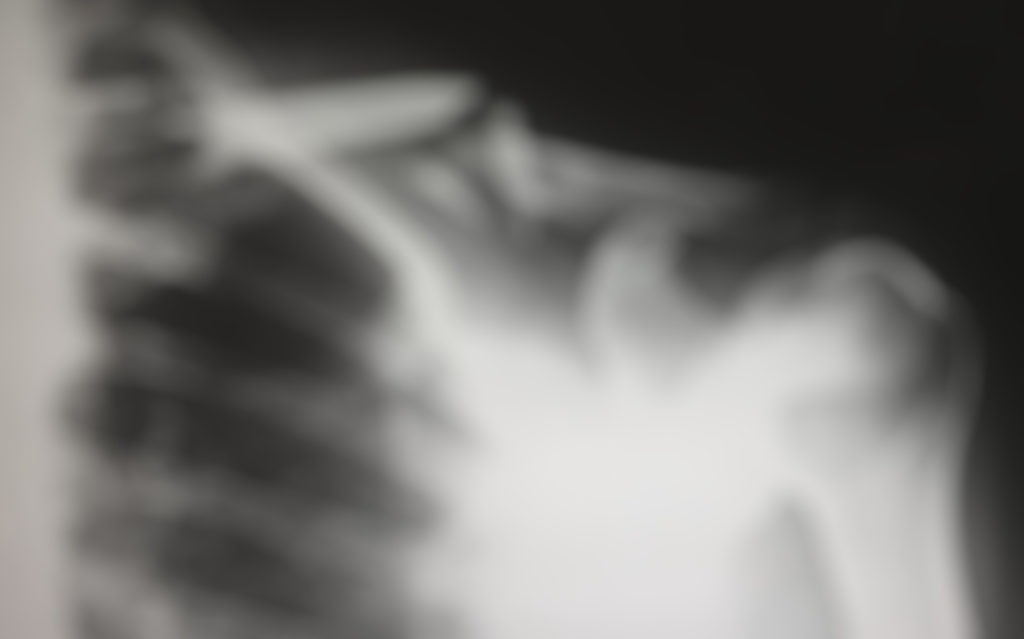
Photo by Harlie Raethel on Unsplash
Formative tests in online courses, by themselves, can be excellent tools to enhance learning and teaching or they can be of limited use; almost useless in fact. The difference is in how they are written and used. In some ways they are like medical x-rays.
We get an x-ray (or other imaging service) to see if things are normal or if something is wrong. Similarly, students take part in formative online quizzes and tests to determine if they are progressing well or if something is wrong and they haven’t understood the material as well as they could have.
There is then a sequence that occurs (or should occur) in both. The sequences are:
| Medical | Educational | |
| 1 Look at the results | We can look at the x-ray images. I don’t know if you have tried this, but I have. In most cases I have no idea what to look for (unless it is really obvious – like a broken bone).
|
Students are often the same. They look at their test result (and some automated feedback if they are lucky) but are sometimes no wiser on what to do to improve their knowledge and understanding. |
| 2 Have a specialist examine the results | A radiologist, a specialist medical doctor who is highly trained and can interpret x-rays (and other medical images) analyses and interprets the images. They provide a report on what is normal and what is abnormal.
|
This is the role of the teacher in education. A teacher should look at the results of online formative tests to provide insights to the student on what to do to increase their knowledge and understanding of the topic. This may or may not happen, and from my experience is not common. |
| 3 Use the analysis to treat the problem, or convey the good news that all is OK | A medical doctor receives the report and the images from the radiologist and talks with the patient about the outcomes.
|
This is once again the role of the teacher in the world of education. The teacher should work with the student to help them understand the ‘diagnosis’ and should then provide a pathway to resolve any problems. |
| 4 Refer to a specialist if appropriate | Sometimes, when a problem is specific, and the General Practitioner doctor cannot fix it, the doctor will refer the patient to a specialist.
|
This can and should also happen in education. If the issue is outside the realms of traditional teaching (such as diminished motivation, problems at home, difficulties in setting study timetables and goals), the teacher may refer the student to a specialist, such as a career counsellor, academic coach or student support officer.
|
Time for follow through
If we are serious about online education, whether fully online or largely face to face education with online support materials, we need to provide time for teachers to follow up with students when online formative tests are used. Automated responses are good for basic feedback, but they are not a substitute for a trained teacher.
The diagnosis – dependant on a quality x-ray or quality questions in a formative test
Of course, the diagnosis is only as good as the quality of the x-ray or the test (in education). In medicine, radiographers are medical imaging specialists who take x-rays and other medical images for doctors. They ensure that a high-quality x-ray image is produced.
In education, high quality questions need to be written. These take much more time than trivial questions that are sometimes found in online materials. Teachers need to be trained in the writing of quality questions. If questions are poorly written, the level of knowledge and understanding of students cannot be accurately determined, and some students may even ‘game the system’ – guessing the correct answer using cues and clues in the question. (More on this in the next article.)
Of course, we all understand that writing high quality questions is the ideal. Teachers are usually very busy and time poor. We need to automate more systems so that they spend less time on ‘non-teaching’ paperwork and processes and can focus more on teaching and helping students. We also need to ensure that teachers have sufficient professional development to better understand the requirements of ‘good’ online learning and teaching materials.
The paradox – technology and more personalised education
The paradox of ‘real’ modern education is that technology can make education more personal. It can provide insights that a teacher in a fully face to face class can normally only guess. Teacher intuition can be powerful, but online formative quizzes can provide hard data to support teacher intuition. Of course, some teachers in face-to-face classes have regular class quizzes. Excellent. Online formative quizzes can supplement these.
Leadership and resources
As with so many things in education, the ideas outlined in this article rely on ‘good’ organisational leadership and the commitment to provide the time and resources required to support teachers and ancillary staff, and to better support students.
Some will say this is idealistic and too difficult. Yet isn’t this what education is about? Optimal support of students to maximise the chance of success…


Latest posts by Peter West (see all)
- The 20:20:60 Rule of eLearning Evolution - October 11, 2022
- Is your school ready for an LMS? – The Data Design Continuum (DDC) - August 25, 2022
- Is your school ready for an LMS? – The Course Design Continuum (CDC) - September 7, 2021
You must be logged in to post a comment.

![harlie-raethel-ouyjDk-KdfY-unsplash[1]](https://educationtechnologysolutions.com/wp-content/uploads/2021/04/harlie-raethel-ouyjdk-kdfy-unsplash1-1050x656.jpg)
There are no comments
Add yours